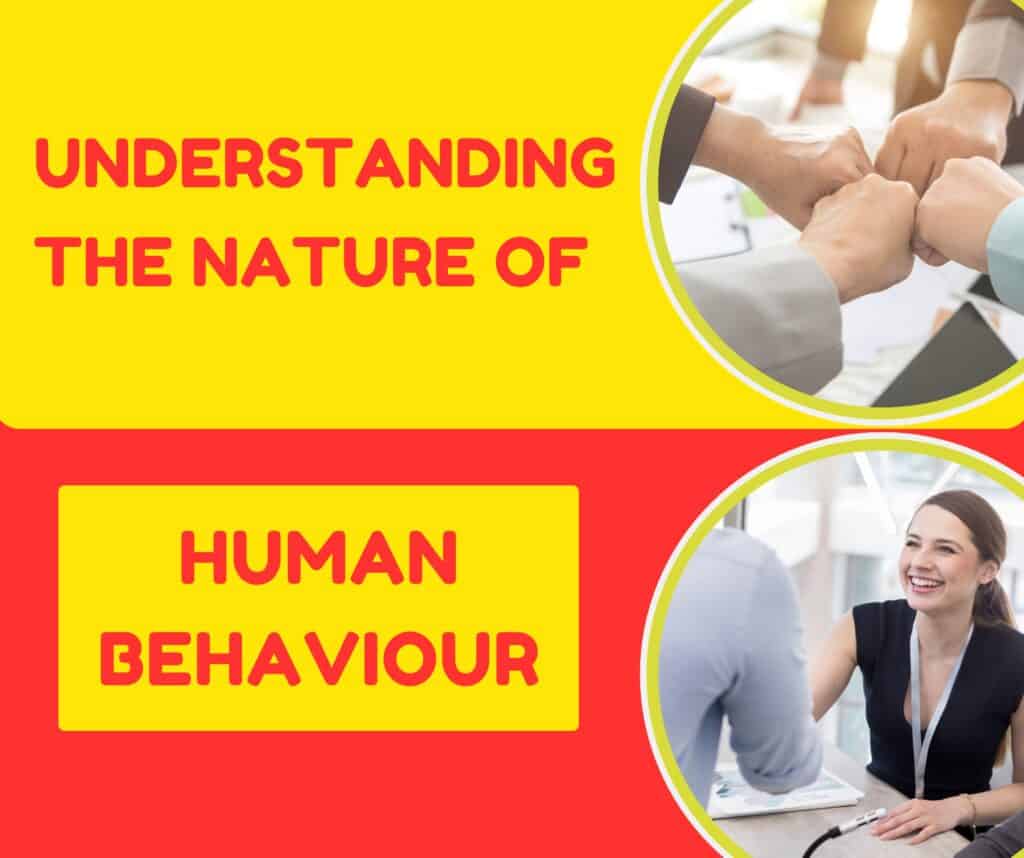Every day, we are faced with countless decisions—some are small and seem insignificant, like choosing what to eat for breakfast, while others are more impactful, like deciding on a career path or where to live. The act of making choices is a fundamental part of our lives. Whether consciously or subconsciously, the choices we make shape our experiences, relationships, and future outcomes.
At its core, decision-making is about selecting the best option from a range of alternatives. But why is it so important? Because every choice we make has consequences. From the personal decisions that affect our happiness and well-being to professional choices that determine our success, understanding how to make effective choices is key to living a fulfilled life.
In this article, we’ll explore:
- Why making choices is vital in both personal and professional contexts.
- The factors that influence our decision-making process, including personal values, emotions, and external pressures.
- Proven strategies to help you make better choices, such as setting goals, trusting your instincts, and managing decision fatigue.
- Common mistakes people make when choosing and how to avoid them.
By the end of this guide, you’ll be equipped with the tools and mindset needed to approach decision-making with confidence, ensuring that you make choices that align with your goals and values.
Don’t just dream about success—create it. Start your online business now!
Try Wealthy Affiliate (For Free).
Understanding the Importance of Making Choices
Making choices is a central part of human existence. Every decision we make, no matter how big or small, plays a role in shaping our personal and professional lives. The significance of choice goes beyond the immediate outcome; it influences our sense of empowerment, control, and overall well-being.
Significance of Choice in Personal Life
In our personal lives, the choices we make define who we are and where we go. From deciding on lifestyle habits like exercise and nutrition to more complex decisions involving relationships and finances, every choice carries weight. For example, choosing how to spend your time—whether investing in self-care, pursuing hobbies, or spending time with loved ones—can significantly impact your happiness and quality of life.
Empowerment and Control Over One’s Life
One of the most empowering aspects of decision-making is the sense of control it gives us. When we make choices for ourselves, we actively shape our lives and take ownership of our path. This sense of autonomy fuels self-confidence and personal growth, as we recognize our ability to steer our lives in a direction that aligns with our values and goals. In contrast, when we feel like we have no choice or when decisions are made for us, it can lead to feelings of helplessness or dissatisfaction.
Impact on Mental Well-Being and Happiness
The ability to make choices also has a profound impact on our mental well-being. Studies have shown that individuals who feel in control of their decisions tend to experience lower levels of stress and anxiety. Conversely, when we are overwhelmed by choices or unable to decide, it can lead to decision fatigue, frustration, and even depression. The choices we make about how to manage stress, seek support, or prioritize self-care can directly affect our mental health and overall happiness.
Moreover, making decisions that align with our personal values and desires enhances our sense of fulfillment. When we consciously choose a path that reflects our true selves, we are more likely to experience long-term happiness and contentment.
Significance of Choice in Professional Life
In the professional world, the ability to make effective choices can determine career success. Whether it’s deciding which job offer to accept, when to take risks, or how to allocate resources at work, decision-making is crucial for growth and advancement. Leaders, in particular, must make difficult decisions that affect not only their own future but also that of their team or organization.
For professionals, making choices about work-life balance, career development, and job satisfaction is essential. Choosing to pursue professional development opportunities or take on new challenges can lead to career growth and increased job satisfaction, while poor choices in these areas can result in burnout or stagnation.
Common Scenarios Where Choices Are Crucial
Some common situations where making wise choices is critical include:
- Career Decisions: Choosing between job opportunities, deciding to start a business, or opting for further education.
- Relationships: Choosing a life partner, deciding to end or improve a relationship, or setting boundaries.
- Financial Choices: Deciding how to budget, invest, or save for future goals.
- Health and Wellness: Making choices about diet, exercise, and mental health support.
Factors Influencing Our Choices
Every decision we make is influenced by a variety of internal and external factors. Understanding these factors can help us make more informed and aligned choices that reflect our true desires and needs. Three major forces—personal values, emotional state, and external influences—play key roles in shaping the decisions we make.
Personal Values
Our personal values are the core beliefs and principles that guide our behavior and decision-making. These values, often shaped by our upbringing, culture, and life experiences, act as an internal compass, helping us determine what we view as right or wrong, important or unimportant. Decisions that align with our values tend to make us feel fulfilled, while those that go against our values can lead to regret or dissatisfaction.
How Values Shape Decision-Making
When making a choice, whether consciously or subconsciously, we often evaluate it through the lens of our personal values. For example, if honesty is a core value, you’re likely to choose paths that emphasize transparency and truthfulness, even if the decision is difficult. On the other hand, if financial security is a priority, you might make career decisions based on job stability and earning potential rather than passion or interest.
Examples of Values Impacting Choices
- Family vs. Career: If family is a top priority, you might choose a job that offers work-life balance over one with high demands but better pay.
- Health and Wellness: Someone who values health may choose to spend more money on organic food or a gym membership rather than indulging in luxury items.
- Integrity: People with a strong value for integrity might refuse job offers or business deals that require compromising on ethics, even if the financial reward is tempting.
Understanding your own values is crucial because it helps you make decisions that feel authentic and satisfying. When you’re aware of what’s most important to you, it becomes easier to filter out choices that don’t align with your values and focus on those that do.
Emotional State
Emotions are powerful forces that can have a significant impact on decision-making. While emotions can provide valuable insights and intuition, they can also cloud judgment and lead to impulsive or irrational decisions if not managed properly.
The Role of Emotions in Choices
Emotions like fear, excitement, anger, or joy often drive us to make decisions quickly, sometimes without considering all the facts. Positive emotions like happiness or enthusiasm can lead to optimistic choices, while negative emotions like stress, anxiety, or frustration might push us toward avoidance or rash decisions. While emotions shouldn’t be ignored—they often carry important messages about how we truly feel about a situation—it’s important to ensure that emotional reactions are balanced with logical thinking.
Ways Emotions Can Cloud Judgment
- Fear of Missing Out (FOMO): A common emotional response in decision-making, where individuals rush to seize opportunities out of fear of regret, often leading to impulsive and short-sighted decisions.
- Stress and Anxiety: High levels of stress can make decision-making feel overwhelming, causing people to either avoid making choices altogether or choose the quickest solution, which might not be the best one.
- Anger and Frustration: In moments of anger, people may make reactionary decisions, like quitting a job on impulse or ending a relationship without reflection, which they later regret.
- Overconfidence: When overly happy or excited, individuals may overestimate their abilities and make overly risky decisions without considering the consequences.
To avoid letting emotions control your decisions, it’s important to take a step back and give yourself time to process how you feel. Tools like mindfulness, journaling, or even talking to a trusted friend or advisor can help you sort through emotions before making significant choices.
External Influences
While internal factors like values and emotions play a crucial role in decision-making, external influences—such as societal expectations, peer pressure, and media—also have a profound impact. These external forces can often lead us to make decisions that may not align with our true selves or long-term goals.
Peer Pressure and Societal Expectations
The opinions and actions of others can strongly influence our choices. Whether it’s pressure from friends, family, or colleagues, we may feel compelled to make decisions that conform to what others expect from us, rather than what we truly want. This is particularly common in decisions related to career, lifestyle, or even personal appearance. For example:
- Career Choices: Many people choose careers based on societal definitions of success or parental expectations, rather than personal passion or interest.
- Lifestyle Choices: Peer pressure can push individuals to make financial decisions, such as buying expensive clothes, gadgets, or homes, to “keep up” with those around them, even if it strains their budget.
Understanding how much of your decision is being influenced by external expectations can help you distinguish between choices that reflect your own desires and those shaped by others.
The Impact of Media and Advertising
In today’s digital world, media and advertising play a huge role in shaping our choices. The messages we consume through social media, television, and the internet often influence our opinions about what’s desirable, valuable, or even necessary. Advertisers craft messages designed to evoke emotions and persuade us to make specific choices, whether it’s buying a product, adopting a trend, or making lifestyle changes.
- Consumerism: Advertising can make us feel that buying certain products will make us happier, healthier, or more successful, leading us to make unnecessary purchases.
- Social Media Influence: Platforms like Instagram or TikTok can drive individuals to make choices that fit a certain “image” or lifestyle, often resulting in comparisons and dissatisfaction with one’s own life.
- FOMO in Media: Media also amplifies the fear of missing out, especially in travel, finance, or tech sectors, where people are pressured to jump on the latest trends or investments without much thought.
Affiliate Disclosure: Some of the links in this post are affiliate links, meaning I may earn a commission if you make a purchase. These resources offer free training and tools to help you succeed online.
Try Wealthy Affiliate (For Free).
Strategies to Make Better Choices
Making effective decisions is a skill that can be developed by using strategic approaches. While we all face different kinds of choices—big and small—using a systematic approach can help ensure that the choices we make align with our goals and values. Here are some key strategies for improving decision-making, from defining your objectives to trusting your instincts.
Define Your Goals
One of the most important first steps in making better choices is to clearly define your goals. Without a clear destination, it’s easy to get lost in the decision-making process or make choices that don’t move you toward your desired outcome.
Importance of Setting Clear Objectives
Setting clear goals gives you a roadmap for making decisions. When you know what you want to achieve, you can evaluate your choices based on how well they align with your objectives. For example, if your goal is to save money for a home, choices around spending, career opportunities, or even leisure activities will be filtered through that lens. Without clear goals, it’s easier to get distracted by short-term temptations or to make decisions that lead you off course.
Having specific, measurable, and realistic goals also helps you prioritize. This way, you can focus your energy and attention on the decisions that are most likely to help you achieve your larger ambitions, rather than spreading yourself too thin.
Tips for Goal-Setting
- Be Specific: Avoid vague goals like “be successful” or “get in shape.” Instead, focus on specific outcomes such as “increase my savings by 20% this year” or “exercise three times a week for 30 minutes.”
- Make Goals Measurable: Quantifiable goals, such as a target savings amount or a number of new clients, provide a clear benchmark for progress.
- Set Deadlines: Goals without a timeline often get pushed aside. Having a deadline creates a sense of urgency and focus.
- Break Down Large Goals: If your goal is big, break it down into smaller, actionable steps. This makes the process less overwhelming and helps you stay motivated.
By taking the time to clarify what you want, you can ensure that your decisions are purposeful and geared toward meaningful outcomes.
Gather Information
Once your goals are defined, the next step is to gather all the relevant information before making a decision. An informed choice is always a better choice because it minimizes the risk of unforeseen consequences.
Research Options Thoroughly
Before jumping to a conclusion, it’s important to explore all your options. Whether it’s a career move, a significant financial decision, or a lifestyle change, gathering information from reliable sources can provide insights you may not have considered. Look at the benefits, risks, and possible outcomes of each option. This includes seeking advice from experts, reading reviews, or talking to people who have been in similar situations.
Utilize Pros and Cons Lists
A classic method for decision-making is the pros and cons list. Listing the positive and negative aspects of each option allows you to weigh them objectively. By visually mapping out the benefits and drawbacks of each choice, you can more clearly see which one best aligns with your goals and values.
For instance, if you’re deciding whether to move to a new city, the pros might include better job opportunities and a new social scene, while the cons could be higher living costs or being farther from family. Writing these down can give you a clearer perspective on which factors matter most to you.
Limit Your Options
While having choices is a good thing, too many options can sometimes lead to decision paralysis. This is known as decision fatigue, where the more choices we have, the harder it becomes to make any decision at all.
Decision Fatigue and How It Hinders Choices
When we are faced with too many choices, we often become overwhelmed, which can lead to poor decision-making or avoidance of the decision altogether. Studies have shown that the cognitive load of evaluating multiple options leads to mental exhaustion, making us more likely to either choose impulsively or not choose at all. For example, when presented with 50 different investment options, it becomes much harder to make a decision than if you had only five to choose from.
Techniques for Narrowing Down Choices
- Set Criteria: Create specific criteria based on your goals and values to quickly eliminate options that don’t meet your standards. For example, if you’re choosing a job, you might set criteria around salary, location, company culture, and growth opportunities.
- Use the “Rule of Three”: Limit yourself to considering three to five top options to avoid overwhelming yourself with possibilities.
- Time Limits: Set a time limit for making a decision. By giving yourself a deadline, you’re forced to focus on the most relevant information and make a choice within a reasonable timeframe.
- Delegate Smaller Decisions: For smaller, less significant decisions, you can delegate or automate processes to reduce the number of choices you need to make. This frees up your mental energy for the more important decisions.
By limiting your options, you reduce the chances of feeling overwhelmed and can make more confident, thoughtful decisions.
Trust Your Instincts
While rational analysis and information gathering are important, sometimes our gut feelings or instincts provide valuable insights that shouldn’t be ignored. Intuition is often based on our accumulated experiences, knowledge, and subconscious processing of information.
The Role of Intuition in Decision-Making
Intuition is that “gut feeling” or sense of knowing that often arises without us being able to fully explain why. Research suggests that in many cases, intuition can be an effective tool in decision-making, especially when we’re dealing with complex, uncertain, or time-sensitive situations. This is because our brains continuously process patterns and information subconsciously, and intuition can often point us toward the right choice.
For example, when you’ve worked in a particular field for a long time, you might “just know” whether a business deal is right or wrong based on a gut feeling. This intuition is often grounded in your expertise and past experiences.
Balancing Gut Feelings with Rational Analysis
However, while intuition is powerful, it’s important to balance it with logic and analysis. Blindly following your gut without considering facts can sometimes lead to biased or hasty decisions. Here’s how you can find the right balance:
- Validate with Facts: After making an instinctive choice, check if the available data supports your gut feeling. This helps prevent acting purely on emotion.
- Listen to Your Body: Physical sensations like unease or excitement can sometimes indicate whether a choice aligns with your true feelings.
- Take a Moment: If you feel a strong gut instinct, take a brief pause to reflect on why you feel that way before making the final decision. This can help ensure your intuition is grounded in reason.
Overcoming Decision Fatigue
Decision fatigue occurs when the brain becomes overwhelmed by the sheer number of decisions that need to be made throughout the day. As a result, our ability to make well-considered choices deteriorates, leading to impulsive, irrational, or avoidant decision-making. Learning how to overcome decision fatigue is crucial for making more effective and thoughtful decisions. Here’s how you can recognize the signs of decision fatigue and apply strategies to manage it effectively.
Recognize Symptoms of Decision Fatigue
The first step in overcoming decision fatigue is recognizing when it’s happening. Often, people push through the day unaware that their decision-making abilities are deteriorating.
Signs That You Are Overwhelmed with Choices
- Procrastination: When faced with too many decisions, people often delay making any decision at all. If you find yourself putting off simple or even important choices, this could be a sign of decision fatigue.
- Increased Stress and Anxiety: Feeling stressed about decisions that normally wouldn’t bother you can be a red flag. You might feel a sense of mental exhaustion or frustration at the thought of having to make another decision, no matter how small.
- Impulsiveness or Poor Choices: In decision fatigue, people often make rash, impulsive choices to get a decision “over with” or they may stick with the status quo rather than considering alternatives. If you find yourself making less thoughtful decisions, it might be due to fatigue.
- Difficulty Focusing: Struggling to concentrate or feeling mentally foggy when trying to decide is another sign. Your brain may simply be too tired to process additional information.
- Regret or Doubt: Frequently second-guessing your decisions or feeling dissatisfied afterward can indicate that your brain wasn’t functioning at full capacity when making the choice.
Recognizing these signs early is essential to prevent decision fatigue from affecting your productivity, relationships, or well-being.
Implement Decision-Making Routines
Establishing routines for decision-making can help reduce the cognitive load and prevent decision fatigue. By automating certain decisions and following predictable patterns, you leave more mental energy for the more critical decisions that truly require your attention.
Establishing Regular Times for Decision-Making
One effective way to combat decision fatigue is to allocate specific times in the day for making important decisions. For example, studies show that decision-making abilities are generally sharper in the morning when the brain is well-rested. By scheduling critical decisions early in the day, you can take advantage of your brain’s peak performance period.
If mornings don’t work for you, setting aside regular decision-making windows, such as after lunch or in the early afternoon, can help establish a routine. Having designated times eliminates the pressure of making decisions randomly throughout the day and prevents you from feeling mentally drained.
Examples of Simple Routines to Follow
- Pre-plan Meals: Rather than making spontaneous meal choices, plan your meals for the week in advance. This eliminates the daily decision of “what to eat” and reduces unnecessary mental effort.
- Set a Daily Wardrobe: Streamline your clothing choices by deciding what you’ll wear the night before or even creating a weekly wardrobe rotation. This not only saves time but also conserves mental energy for more important decisions.
- Automate Repetitive Tasks: Delegate small, recurring decisions to automation. For example, set recurring payments for bills, schedule weekly grocery deliveries, or create default shopping lists for common purchases.
By automating the less important decisions, you free up cognitive space for the more significant choices you’ll need to make.
Your financial future is in your hands. Click here to take control!
Try Wealthy Affiliate (For Free).
Practice Mindfulness and Self-Care
Another powerful way to combat decision fatigue is through mindfulness and self-care practices. These techniques help reduce stress, restore focus, and create mental clarity, which is crucial for effective decision-making.
Techniques for Staying Calm and Centered
Mindfulness involves staying present in the moment, being aware of your thoughts, and observing your emotions without judgment. By practicing mindfulness, you can reduce mental clutter and improve your ability to think clearly when faced with multiple choices. Some mindfulness techniques that are particularly useful in decision-making include:
- Deep Breathing Exercises: When you feel overwhelmed by choices, pause and take several deep breaths. This simple act can calm the nervous system, reduce stress, and clear your mind for better decision-making.
- Meditation: Regular meditation helps enhance focus, calm the mind, and improve your emotional regulation. Even just a few minutes of meditation each day can sharpen your decision-making abilities.
- Mindful Decision-Making: When making decisions, take a moment to assess how you’re feeling emotionally and mentally. Being mindful of your emotional state can help prevent hasty or impulsive choices driven by stress or fatigue.
Benefits of Mindfulness on Decision-Making
- Enhanced Clarity: Mindfulness can help declutter your mind, making it easier to evaluate your choices objectively. This results in more thoughtful and deliberate decisions.
- Better Emotional Regulation: By practicing mindfulness, you become more aware of how your emotions influence your choices. This allows you to manage emotions effectively, preventing them from clouding your judgment.
- Reduced Stress: Regular mindfulness practices, such as meditation and breathing exercises, lower cortisol levels (the stress hormone), which in turn reduces the feeling of overwhelm that often leads to decision fatigue.
Incorporating Self-Care to Combat Fatigue
Beyond mindfulness, self-care practices play a vital role in maintaining mental clarity and energy throughout the day. Physical and mental exhaustion are key contributors to decision fatigue, so taking care of your body and mind is essential.
- Prioritize Sleep: A well-rested brain is more capable of handling multiple decisions. Lack of sleep directly affects cognitive function, leading to poor decision-making. Prioritize getting 7-8 hours of sleep each night to ensure your brain can recharge.
- Take Breaks: Giving your brain periodic breaks throughout the day prevents mental burnout. Even a short walk or quick stretching exercise can reset your mind and help you approach decisions with fresh energy.
- Hydration and Nutrition: Your brain needs proper hydration and nutrition to function optimally. Ensure that you’re drinking enough water and eating balanced meals to keep your energy levels stable and avoid decision fatigue.
Common Mistakes in Decision-Making
When making decisions, it’s easy to fall into certain traps that can hinder effective choices. Recognizing these common mistakes and understanding how they impact decision-making can help you avoid them and make more confident, thoughtful decisions. Three of the most prevalent pitfalls are overthinking, ignoring emotions, and fearing regret.
Overthinking
Overthinking, also known as analysis paralysis, is one of the most common mistakes people make when faced with decisions. It occurs when you become so caught up in analyzing every possible outcome, risk, or option that you are unable to make any decision at all. While it’s important to be thorough, over-analyzing can lead to stagnation, missed opportunities, and increased stress.
The Dangers of Analysis Paralysis
- Increased Stress: The more you ruminate over every possible angle of a decision, the more pressure you feel. This can lead to heightened stress and anxiety, which makes it harder to make a clear, confident choice.
- Delayed Action: Overthinking often results in indecision or procrastination. When you spend too much time weighing every detail, you delay taking action, and opportunities might pass you by. Sometimes, the fear of making the “wrong” choice leads to making no choice at all.
- Loss of Confidence: The more you overthink a decision, the more you second-guess yourself. This erodes your confidence in your ability to make good choices, making future decisions even harder.
- Missed Opportunities: Sometimes, the time spent overthinking causes you to miss out on opportunities that require timely action. Hesitation can lead to lost chances, whether in your personal or professional life.
How to Overcome Overthinking
- Set a Time Limit: Give yourself a specific amount of time to make a decision. For example, if it’s a minor decision, set a 10-minute time frame to choose, while larger decisions may need a day or two. Setting a deadline encourages action.
- Trust Your Initial Instincts: Sometimes, your first gut feeling is the right one. While it’s important to gather information, trust your initial judgment when you feel confident about it.
- Simplify the Process: Focus on the key aspects of the decision and avoid getting bogged down by unnecessary details. Create a pros and cons list with the most relevant factors, and base your decision on that.
- Embrace Imperfection: Recognize that no decision is perfect, and you can’t predict every outcome. Accepting that mistakes are part of the process can help you move forward more confidently.
Ignoring Emotions
While it’s easy to think that decisions should be purely logical, ignoring emotions is another common mistake that can lead to poor choices. Emotions play a critical role in decision-making because they are closely tied to your values, desires, and personal well-being. When you neglect your emotional responses, you risk making choices that don’t align with your true feelings or lead to dissatisfaction later on.
How Neglecting Feelings Can Lead to Poor Choices
- Disconnection from Your True Desires: When you ignore your emotions, you might make choices that seem logical on the surface but don’t actually align with what you really want or need. This can lead to decisions that feel hollow or unsatisfying.
- Suppressed Emotions Surface Later: Pushing aside your feelings doesn’t make them disappear. Often, unresolved emotions can resurface after the decision has been made, leading to regret or emotional distress.
- Unbalanced Decisions: If you focus solely on rational factors like costs, statistics, or external validation, your decision may be incomplete. Emotions provide valuable insight into how a decision will affect your happiness, relationships, and overall well-being.
How to Balance Logic and Emotion
- Acknowledge Your Feelings: Recognize how you feel about each option. If you’re excited, anxious, or uneasy, these emotions are giving you important clues. Don’t dismiss them; instead, integrate them into your decision-making process.
- Check for Alignment with Values: Your emotions often reflect your deeper values. If a decision feels wrong or uncomfortable, it may be because it doesn’t align with what matters most to you. Weigh both logical reasons and emotional reactions to make a more balanced choice.
- Don’t Let Emotions Dominate: While it’s important to consider your emotions, be careful not to let them overpower the decision. Use your emotions as a guide but combine them with rational analysis to avoid impulsive or overly emotional choices.
Fearing Regret
The fear of making the wrong choice can be paralyzing and is one of the key reasons why many people struggle with decision-making. This fear stems from a desire to avoid regret, but it can prevent you from making decisions or cause you to dwell excessively on the potential negative outcomes of a choice.
How Fear of Making the Wrong Choice Can Paralyze Decision-Making
- Paralysis by Analysis: When you’re consumed by the fear of regret, you may spend an excessive amount of time analyzing your options in an attempt to ensure a perfect outcome. This can lead to indecision, where you avoid making any choice to escape the possibility of regret.
- Missed Opportunities: Fearing regret can cause you to hesitate or avoid making decisions that involve risk, even if those decisions offer the potential for great rewards. Inaction, driven by fear, often results in lost opportunities and stagnation.
- Overemphasizing Negative Outcomes: The fear of regret can cause you to focus too heavily on what could go wrong rather than considering what could go right. This negative bias can cloud your judgment and prevent you from making rational, well-rounded choices.
How to Manage Fear of Regret
- Accept That Mistakes Are Inevitable: Understand that no decision is guaranteed to be perfect, and mistakes are a natural part of life. Accepting that some level of regret is unavoidable helps you move forward without being paralyzed by fear.
- Focus on Learning, Not Perfection: Shift your mindset from fear of failure to a perspective of growth. Even if a decision doesn’t lead to the desired outcome, it can be a valuable learning experience. Recognizing that all decisions offer insights can reduce the fear of regret.
- Visualize Positive Outcomes: Instead of fixating on potential failures, spend time imagining positive scenarios that could arise from your decision. This practice helps balance your view of the decision and reduces the tendency to overestimate negative consequences.
Conclusion
In this article, we’ve explored the importance of making choices and how our decisions shape both our personal and professional lives. From understanding the significance of decision-making to identifying the factors that influence our choices, we’ve covered the key elements that help us navigate everyday decisions more effectively.
Every great journey begins with a single step. Take yours by starting your business today!
Try Wealthy Affiliate (For Free).
We’ve also delved into practical strategies to improve your decision-making skills. Whether it’s defining your goals, gathering information, or trusting your instincts, these approaches can help you make more confident and balanced choices. Additionally, by recognizing and overcoming decision fatigue, establishing routines, and practicing mindfulness, you can avoid feeling overwhelmed by options and make decisions with greater clarity.
Furthermore, we highlighted some common mistakes that people often fall into during decision-making, such as overthinking, ignoring emotions, and fearing regret. Understanding these pitfalls allows you to be more aware of your own thought processes and improve your ability to make sound decisions.
Key Takeaways:
- Importance of Choices: Making choices gives you control over your life, shapes your future, and directly impacts your happiness and well-being.
- Factors Affecting Choices: Personal values, emotional states, and external influences play a significant role in our decisions. Being aware of these factors helps you make choices that are in line with your true desires.
- Strategies for Better Decisions: Defining your goals, gathering information, limiting your options, and trusting your instincts are all key strategies to making better decisions.
- Avoiding Decision Fatigue: Recognize when you are overwhelmed by choices and implement routines to help simplify the process. Practicing mindfulness and self-care can also help you stay calm and focused.
- Common Mistakes to Avoid: Avoid overthinking, neglecting your emotions, and fearing regret when making decisions. These can lead to stagnation, dissatisfaction, or missed opportunities.
Encouragement to Take Action
Making better choices is a skill that can be developed over time with practice. By applying the strategies and avoiding common pitfalls discussed in this article, you can start making more empowered and informed decisions in your daily life. Don’t be afraid to take charge of your choices—whether big or small—knowing that even mistakes offer valuable lessons.
As a final call to action, we invite you to reflect on your own decision-making processes. What strategies have worked for you in the past? What challenges do you face when it comes to making choices? Share your experiences, tips, or any insights on how you’ve improved your decision-making in the comments below—we’d love to hear from you!







